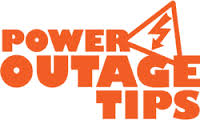
The wind is howling and the trees are swaying. If you are in an area for a potential power outage, read this before the lights go out.
According to the National Weather Service, in 2013 extreme cold and winter storms resulted in 46 deaths. Wintry mix predicted this week in the area prompts the nonprofit Federal Alliance for Safe Homes (FLASH) to offer the following 17 tips to keep families safe and warm if the power goes out:
Family Safety
1. Keep a supply of flashlights, batteries and a battery-powered radio on hand. Do not use candles as they pose a fire hazard.
2. During the power outage, resist the temptation to call 9-1-1 for information–that’s what your battery-powered radio is for.
3. Turn off all lights but one, to alert you when power resumes.
4. Keep your car fuel tank at least half-full, gas stations rely on electricity to power their pumps.
5. Keep extra cash on hand since an extended power outage may prevent you from withdrawing money from automatic teller machines or banks.
6. Be a snow angel. Check on elderly neighbors, friends, or relatives who may need assistance during the outage.
Keeping Warm
7. Put on layers of warm clothing. Never burn charcoal for heating or cooking indoors.
8. If you are using a gas heater or fireplace to stay warm, be sure the area is properly ventilated.
Food
10. Keep a supply of non-perishable foods, medicine, baby supplies, and pet food as appropriate on hand. Be sure to have at least one gallon of water per person per day on hand.
11. Avoid opening the fridge or freezer. Food should be safe as long as the outage lasts no more than four hours.
Generators
12. Do not run a generator inside a home or garage. Use gas-powered generators only in well-ventilated areas.
13. Connect only individual appliances to portable generators.
14. Don’t plug emergency generators into electric outlets or hook them directly to your home’s electrical system – as they can feed electricity back into the power lines, putting you and line workers in danger.
15. Consider purchasing and professionally installing a permanent home generator.
When Power Returns
16. When power comes back on, it may come back with momentary “surges” or “spikes” that can damage equipment such as computers and motors in appliances like the air conditioner, refrigerator, washer or furnace.
17. When power is restored, wait a few minutes before turning on major appliances to help eliminate further problems caused by a sharp increase in demand.
For more information, tips and resources for winter safety visit the Great Winter Weather Party preparedness campaign.